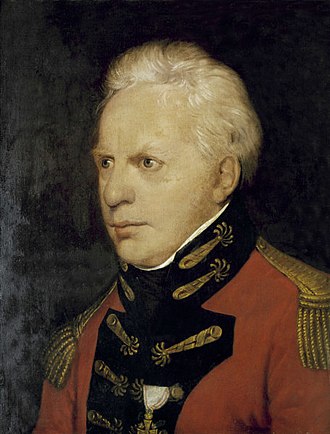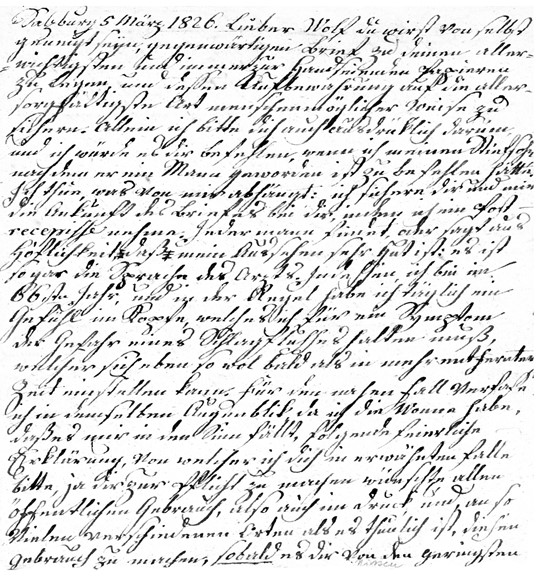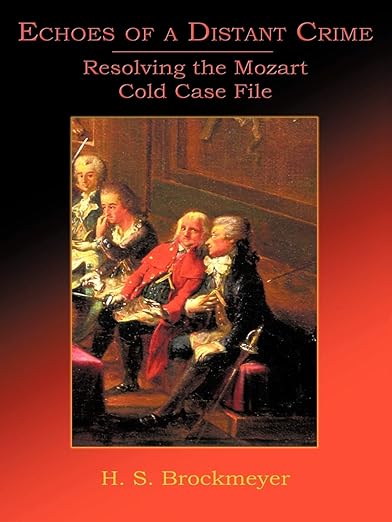MozartrazoM
Georg Nissen and the Missing Notebooks
Article written by H. S. Brockmeyer
After Mozart’s death, his widow, Constanze, found a steadfast partner in Georg Nikolaus von Nissen, a Danish diplomat who dedicated his life to preserving the composer’s legacy. Nissen not only compiled an extensive biography of Mozart but also uncovered and safeguarded many of his compositions. Driven by a deep admiration for Mozart, Nissen even embarked on a secret investigation into the mysterious circumstances of the composer’s death, a pursuit that reflects his unwavering commitment to uncovering the truth.
“Nissen certainly realized the dangers of exposing the murder should it have been
perpetrated by a powerful group with deep connections to the Court.”
Echoes of a Distant Crime: Resolving the Mozart Cold Case File
After the death of the legendary composer Wolfgang Amadeus Mozart, his widow, Constanze, remarried in 1809 to Georg Nikolaus von Nissen, a Danish diplomat and passionate admirer of Mozart’s work. This union not only provided stability for Constanze and her children but also set in motion one of the most remarkable efforts to preserve Mozart’s legacy.

Georg Nicolaus Nissen after painting by Jagemann.
Nissen was a man of diverse talents—a poet, amateur musician, and, above all, a devoted supporter of Mozart. His deep respect for the composer led him to compile an extensive biography of Mozart, a monumental work that spanned over 900 pages and was published posthumously in 1829. Nissen’s dedication to this project consumed much of his life, as he meticulously collected documents, letters, and musical scores, often working late into the night.
Yet, Nissen’s efforts went beyond mere biography. He discovered hundreds of Mozart’s compositions hidden in a closet in Constanze’s apartment, which he carefully cataloged and sold, ensuring that these masterpieces would not be lost to history.
Interestingly, Nissen also harbored suspicions regarding the mysterious circumstances surrounding Mozart’s death. In his final years, he pursued a private investigation, corresponding with close friends and seeking to uncover what he believed was a potential murder plot. His determination to reveal the truth was so profound that, in a secret letter to his stepson Wolfgang, Nissen urged him to continue this investigation after his death, warning of the dangers involved and even involving the King of Denmark as a witness to his testament.

Georg Nikolaus von Nissen’s Letter in 1826 to Step-son Wolfgang Xaver
to Expose Mozart’s Violent End
Image reproduced with permission from the Mozarteum Foundation.
Nissen’s legacy is a testament to his unwavering dedication to Mozart and his relentless pursuit of the truth. Though his final investigation into Mozart’s death remains inconclusive, his contributions to preserving and promoting the composer’s work are invaluable, making him an integral figure in the history of classical music.
To delve deeper into this fascinating story about Georg Nikolaus von Nissen and his connection to Mozart, you can download the full document from the link below.
You May Also Like
The Echo of the Pummerin Bell
The powerful resonance of the Pummerin bell in Vienna may have influenced Mozart’s compositions, particularly Sarastro’s arias in The Magic Flute.
The Hidden Influence of Joseph Boulogne, Chevalier de Saint-George
Joseph Boulogne, known as the “Black Mozart”, was shaping the future of music while Mozart was still struggling for recognition in Paris. But history has buried the significant influence Saint-George had on Mozart’s career, erasing his pioneering style from the narrative.
The Forgotten Viennese Quartets
Attributing Offertorium K.34 to Mozart is not just misleading, it reflects the careless methods used by 19th-century scholars to inflate his legacy. Without an autograph or solid evidence, this work should not be considered part of his output.”
Mozart’s Bassoon Concerto: A Question of Authorship
The Bassoon Concerto K.191 raises more questions than it answers. Long thought to have been composed for a Munich bassoonist, new evidence suggests Mozart had no clear performer in mind. The concerto’s disjointed movements and other dubious compositions attributed to Mozart add further complexity to his legacy
The Uncertain Origins of Mozart’s Early String Quartets
Mozart’s so-called “Milanese Quartets” (K.155, 158, and 159) have long been subject to debate, primarily due to their ambiguous instrumentation and structural weaknesses. Were these works part of a larger series of orchestral divertimenti, hastily repurposed as string quartets? The answer remains elusive, reflecting the young composer’s struggles to find his own voice.
Simplicity, Errors, and the Myth of Perfection
Mozart’s canons are not as complex as often claimed, with notable errors in K.553 and K.554, and the myth of “V’amo di cuore teneramente” K.348 being debunked.







